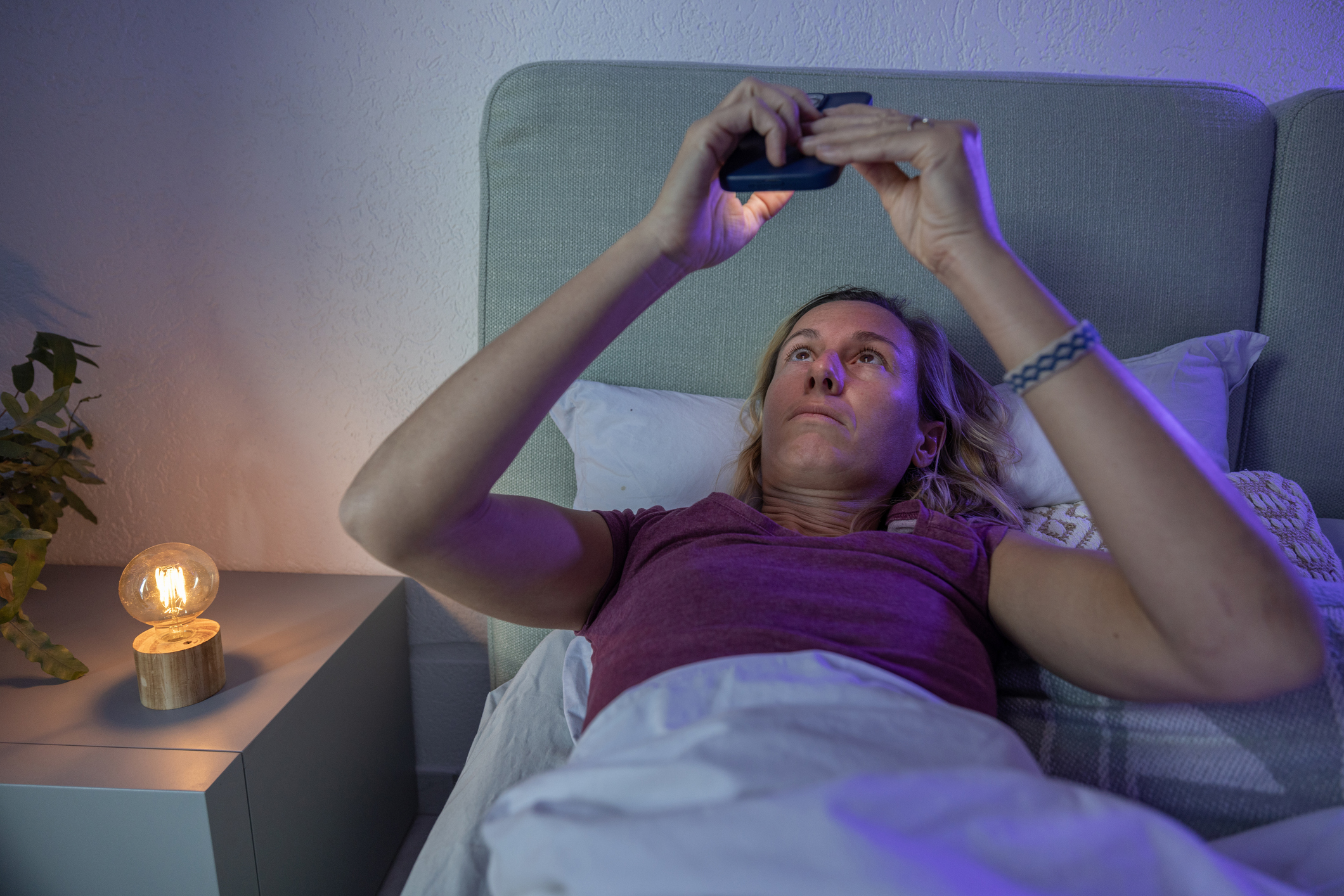

I’ve often wondered if there is an optimal time for people to go to sleep. I usually hit the hay at around 10:30 p.m., so out of curiosity I did a little digging to see if that’s a healthy bedtime.
Turns out exact sleeping times vary from person to person. But for the majority, the best sleep is achieved by going to sleep between 10 p.m. and midnight and waking around 7 a.m. That’s great news for me!
Some people (like my husband) need to go to sleep earlier, while a few are natural “night owls” that can go to sleep past midnight as long as they can sleep a little later in the morning. But these folks are in the minority.
Most of us have a circadian rhythm (our internal body clock) that fits the 10 p.m.-to-midnight scenario. And research shows when we ignore that pull to go to sleep, we pay the price — even more so if we’re overweight….
Circadian rhythm and your cardiometabolic health
Oregon Health & Science University (OHSU) researchers recruited 30 people to study the consequences of disrupting the body’s internal biological clock in overweight people.
Participants were split evenly between men and women, and all had a body mass index (BMI) above 25, which put them in an overweight or obese category, though they were generally healthy.
Saliva samples were collected every 30 minutes until late into the night at a sleep lab to determine what time their bodies started naturally producing the sleep hormone melatonin.
After that, they went home and logged their sleep habits over the next seven days.
The investigators assessed the time difference between melatonin onset and average sleep timing. The participants were then divided into two groups based on that data: those who had a narrow window, with a short duration between melatonin onset and sleep — and those with a wide window, with a longer duration between melatonin onset and sleep.
A narrow window suggests that a person is staying awake too late for their internal body clock and is linked with poorer health outcomes.
In fact, a range of potentially harmful health measures in the group with the narrow window, including key differences between men and women. were confirmed:
- Men in the narrow window group had higher levels of belly fat and fatty triglycerides in the blood, as well as higher overall metabolic syndrome risk scores, than the men who slept better.
- Women in the narrow window group had higher overall body fat percentage, glucose and resting heart rates.
The importance of good sleep habits
Senior author Dr. Andrew McHill, a professor at OHSU, says it was “somewhat surprising” to see these differences. “It’s not one size fits all, as we sometimes think in academic medicine,” McHill adds.
“This study builds support for the importance of good sleep habits,” says lead author Dr. Brooke Shafer, a postdoctoral researcher at OHSU. “Sleep practices, like going to bed when you’re tired or setting aside your screen at night, can help to promote good overall health.”
Shafer notes the growing public health threat of obesity and cardiometabolic disease. “Our research shows that disruptions in the body’s internal biological clock could contribute to negative health consequences for people who may already be vulnerable due to weight,” she says.
Here’s the bottom line: for healthy sleep, you should stick as closely to your body clock as possible (especially if you’re overweight). And that means not varying your sleep schedule: no staying up late and sleeping in on weekends. If you have to, set an alarm so you wake at the same time every day. You can even set a reminder to go to bed at a set time.
If you need help falling asleep, try the bedtime routine of a toddler and these other sleep-inducing tips.
Sources:
Good sleep habits important for overweight adults, OHSU study suggests — EurekAlert!
Circadian alignment, cardiometabolic disease, and sex specific differences in adults with overweight/obesity — The Journal of Clinical Endocrinology & Metabolism
The Best Time to Sleep According to Science — SnoreMD

